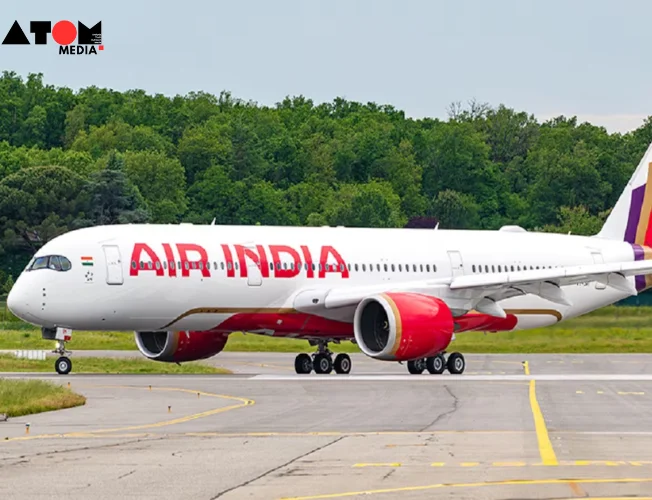Air India, the flagship carrier owned by the Tata Group, has announced a substantial salary hike for its pilots along with an annual performance bonus. The revised salary structure, which will be effective from April 1, aims to boost the morale and financial well-being of the airline’s pilots, ranging from first officers to senior commanders. This strategic move comes in the wake of the airline’s efforts to enhance its operational efficiency and retain its skilled workforce.
Details of the Salary Hike
The salary increments vary across different positions within the pilot cadre. From first officers to senior commanders, the salary increase ranges from ₹5,000 to ₹15,000 in fixed monthly pay. Specifically, junior first officers will not receive a salary hike, while first officers and captains will benefit from a monthly increase of ₹5,000 to ₹15,000.
Introduction of Annual Performance Bonuses
In addition to the salary hikes, Air India has introduced an attractive annual performance bonus scheme. This performance-based incentive is designed to reward pilots for their contributions to the airline’s success. The bonuses range from ₹42,000 to ₹1.8 lakh per annum, based on the pilot’s rank and performance.
- Junior First Officer: ₹42,000 per annum
- First Officer and Captain: ₹60,000 per annum
- Commander: ₹1.32 lakh per annum
- Senior Commander: ₹1.8 lakh per annum
These bonuses will be disbursed based on the pilot’s performance as well as the overall performance of the airline. Air India has also introduced a new system, Rise.AI, to assess individual performance, ensuring that the bonus distribution is fair and transparent.
Addressing Training Delays
Air India acknowledges that some pilots have faced significant delays in their ground and simulator training. To address this, the airline has committed to providing compensation to those affected. This measure is intended to mitigate any financial strain caused by these delays and to ensure that pilots remain motivated and engaged.
Financial Performance of Air India
The announcement of the salary hike and bonuses comes despite Air India’s recent financial challenges. The airline reported a loss of ₹11,381 crore in the fiscal year 2023, an 18.6% increase from the previous fiscal year’s loss of ₹9,591 crore. However, there is a silver lining: Air India’s revenues from operations doubled to ₹31,377 crore in FY23, up from ₹16,763 crore the previous year. This substantial increase in revenue indicates a positive trend and a potential turnaround for the airline.
Total expenses for the fiscal year ending on March 31, 2023, increased by approximately 40.3%, reflecting the airline’s ongoing investments in operations, staff, and infrastructure.
Strategic Importance of Salary Hikes and Bonuses
The salary hikes and performance bonuses are part of Air India’s broader strategy to enhance employee satisfaction and retention. By improving the compensation packages for pilots, the airline aims to attract and retain top talent, which is crucial for maintaining high operational standards and ensuring safety.
Moreover, this move is expected to boost pilot productivity and morale, which can positively impact the airline’s overall performance. Happy and motivated pilots are more likely to contribute to a better passenger experience, leading to increased customer satisfaction and loyalty.
The Road Ahead for Air India
Under the ownership of the Tata Group, Air India is undergoing significant transformations aimed at restoring its former glory. The airline is focusing on improving its financial health, enhancing operational efficiency, and expanding its market presence. The recent salary hike and bonus announcement are steps in this direction, demonstrating the airline’s commitment to investing in its workforce.
Impact on the Aviation Industry
Air India’s decision to increase salaries and introduce performance bonuses could set a precedent in the Indian aviation industry. Other airlines might follow suit to remain competitive in attracting and retaining skilled pilots. This trend could lead to an overall improvement in the compensation standards within the industry, benefiting pilots across the board.
Conclusion
Air India’s announcement of a salary hike of up to ₹15,000 per month and an annual performance bonus of up to ₹1.8 lakh for its pilots marks a significant step towards enhancing employee satisfaction and retention. Despite recent financial losses, the airline’s revenue growth indicates a positive trajectory. By investing in its pilots, Air India is not only aiming to improve its operational efficiency but also setting a benchmark in the industry for employee compensation and morale. As the airline continues its journey under the Tata Group’s stewardship, these strategic moves are likely to play a crucial role in its revival and long-term success.
Read more: Marketing News, Advertising News, PR and Finance News, Digital News





